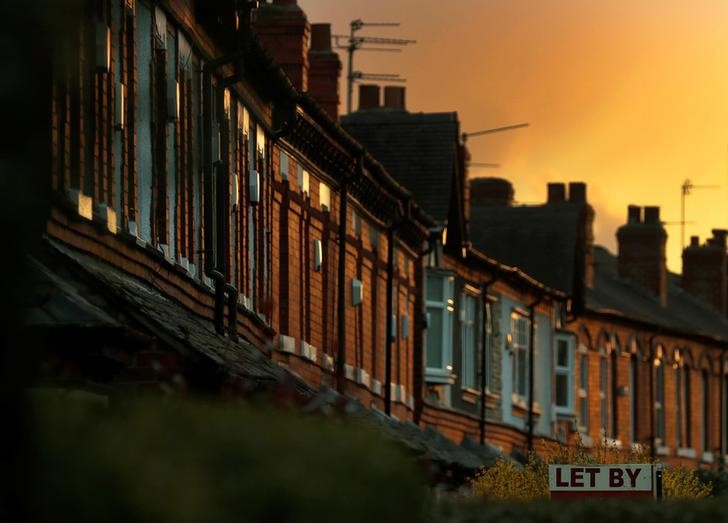LONDON (Reuters) - Construction of private homes slowed sharply in the first three months of 2016, reflecting planning delays and possibly uncertainty linked to Britain's upcoming referendum on European Union membership, a survey showed on Wednesday.
The Royal Institution of Chartered Surveyors said its members reported the weakest growth in private house building since the second quarter of 2013, and that considerably fewer expected growth over the next 12 months than a year ago.
A separate survey by financial data firm Markit showed the weakest house building in three years in March earlier this month, contrasting sharply with more upbeat official numbers.
Britain's government has launched a series of measures to boost construction and private home ownership and wants to build 200,000 homes for first-time buyers aged under 40 by 2020.
"One might well ask why growth in private housing workloads is softening at a time when policy is firmly focussed on the creation of new starter homes," RICS chief economist Simon Rubinsohn said.
"Our survey tells us that planning delays are one of the biggest barriers to growth in the construction sector ... (and) we cannot discount the climate of uncertainty caused by the forthcoming EU referendum," he added.
Britons vote on June 23 on whether to stay in or leave the EU.

Bank of England Governor Mark Carney said on Thursday that uncertainty about the result of the referendum was probably the reason behind foreign interest in British commercial real estate drying up over the past three months.